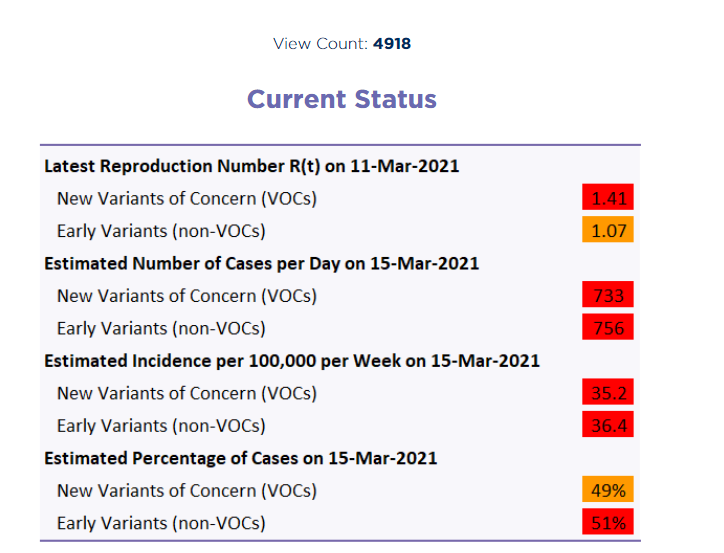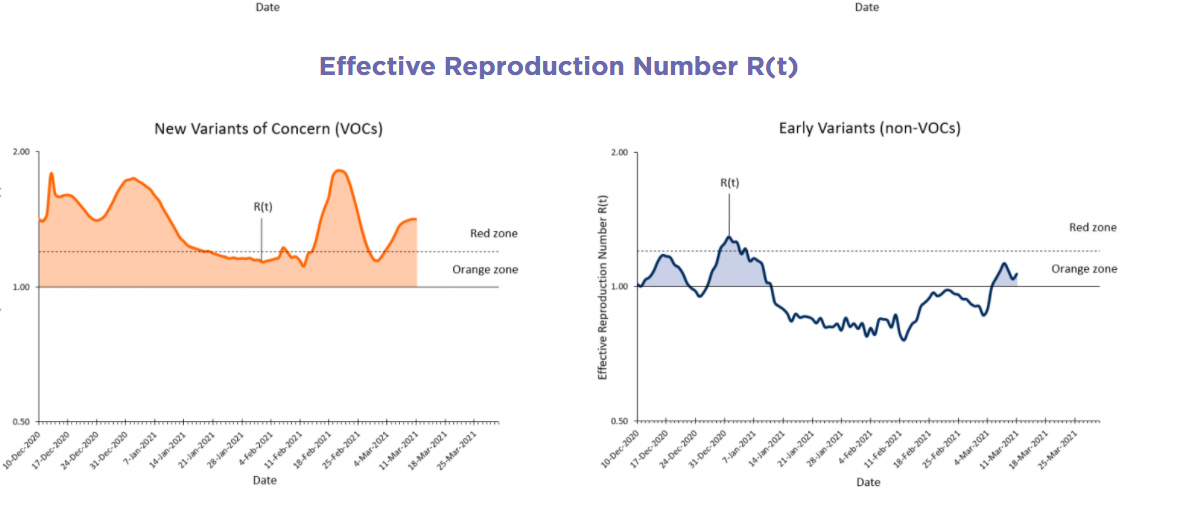
As Ontario attempts to ramp up its vaccination efforts, the Ontario Hospital Association (OHA) says the province is now in a third wave of the COVID-19 pandemic.
The association said on Twitter that new data from Ontario’s COVID-19 science advisory table shows variants of concern (VOC) are steeply rising in the province and the number of patients in ICUs is also trending upward.
The OHA says strong adherence to public health measures is urgently needed to prevent hospitals from being overwhelmed in the third wave.
As of Monday, the science table estimates Ontario is averaging around 733 variant of concern cases a day which is 49 per cent of total cases.

The effective reproduction number — R(t) — indicated to the average number of additional infections caused by one infected person. An R(t) of greater than one indicates exponential growth.
The table says the R(t) for VOC cases is 1.41.
In the province’s most recent round of COVID-19 modelling, the group said that while the drive to vaccinate residents and workers in long-term care has paid off with declining deaths and illness, progress against the virus has stalled outside that sector.
The key to controlling this, Dr. Adalsteinn Brown says, is ramping up vaccination efforts and focusing on regions hardest-hit by the virus and its strains.
The data shows that declines in community cases and test positivity have levelled off and cases are increasing in most Public Health Units, with average weekly cases soaring in regions where variants are most prevalent, such as Thunder Bay and Toronto.
Over the past two weeks, Ontario has seen cases grow by an average of 1.19 per cent per day.
“We’re nearing the finish line, but we’re not there yet,” said Toronto Chief Medical Officer of Health Dr. Eileen de Villa on Monday.

De Villa spoke about drastic rises in COVID-19 variants in Europe, and the subsequent responses of European countries to a third wave. However she said it too soon to say if Toronto is into a third wave.
She also said the problem can be controlled with the same health and safety measures we already know work: physical distancing, staying home, wearing a mask and good hygiene.
Cell phone analytics, however, show that many Torontonians are not staying home.
“None of us wants to continue to live in a state of suspended animation. This has been a significant burden on all of us,” said de Villa.
Recent data also suggests that the Ford government’s decision to loosen public health restrictions in late February, coupled with the spread of the B.1.1.7 variant first discovered in the UK, is like responsible for an end in improved numbers.
Citing the rise of a third wave of COVID-19 in Europe, and rising variants stats in Toronto, Dr. Eileen de Villa still says it’s too soon to declare a third wave in the city. She emphasizes the need for everyone to get a vaccination. @680NEWS pic.twitter.com/Jt9ip2tFar
— Mark Douglas (@Douglas570News) March 15, 2021







